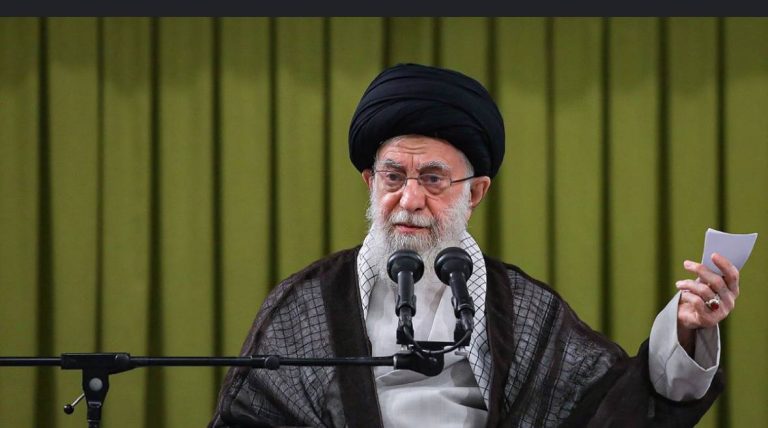The volatile standoff between Iran and Israel escalated dramatically today, with both nations engaging in a new wave of military strikes as the risk of a broader regional war intensifies.
In a defiant address, Iran’s Supreme Leader Ayatollah Ali Khamenei issued a stern warning to the United States, declaring that the Islamic Republic will not tolerate what he described as either “imposed war” or “imposed peace.” He warned that any American strike on Iranian soil would trigger “serious and irreparable consequences,” underscoring Tehran’s hardline stance amid growing international concern.
Khamenei’s comments come just hours after Israel launched a sweeping assault, targeting 40 strategic sites across Iran, including facilities used for nuclear centrifuge production and advanced weapons manufacturing.
Israeli officials confirmed the extensive military operation, describing it as a preemptive measure against what they claim were imminent threats being developed inside Iran’s borders. Among the targets were key installations believed to support Iran’s missile program and uranium enrichment capabilities.
In response, Iran retaliated by launching a swarm of drones toward Israeli territory, marking one of the most direct and coordinated aerial offensives in the history of the two nations’ shadow conflict.
Both sides have accused the other of provoking escalation, but today’s developments mark a sharp departure from the covert tactics and proxy engagements that have long characterized their hostilities.
Ayatollah Khamenei’s statement, delivered via state media, served as a message not only to Israel but also to the United States. “We do not seek war, but we will never accept a dictated peace,” he said. “Any aggression on Iranian soil will result in grave, irreversible consequences.”
The Supreme Leader’s remarks are being interpreted as a warning to Washington not to support Israel’s actions militarily or diplomatically. U.S. officials have so far urged restraint, but pressure is mounting on the Biden administration to clarify its position.
Analysts warn that if a full-scale conflict erupts, it could draw in multiple countries and destabilize the region even further. Already, proxy groups aligned with Iran, such as Hezbollah in Lebanon and militias in Iraq, have hinted at mobilization.
Meanwhile, Israeli defense forces remain on high alert, and Iranian Revolutionary Guard commanders have vowed to “punish aggression at all levels.”
As international calls for calm grow louder, one thing is clear: The stakes are rising, and the next move by Israel, Iran, or the U.S. could redefine the balance of power in the region for years to come.

